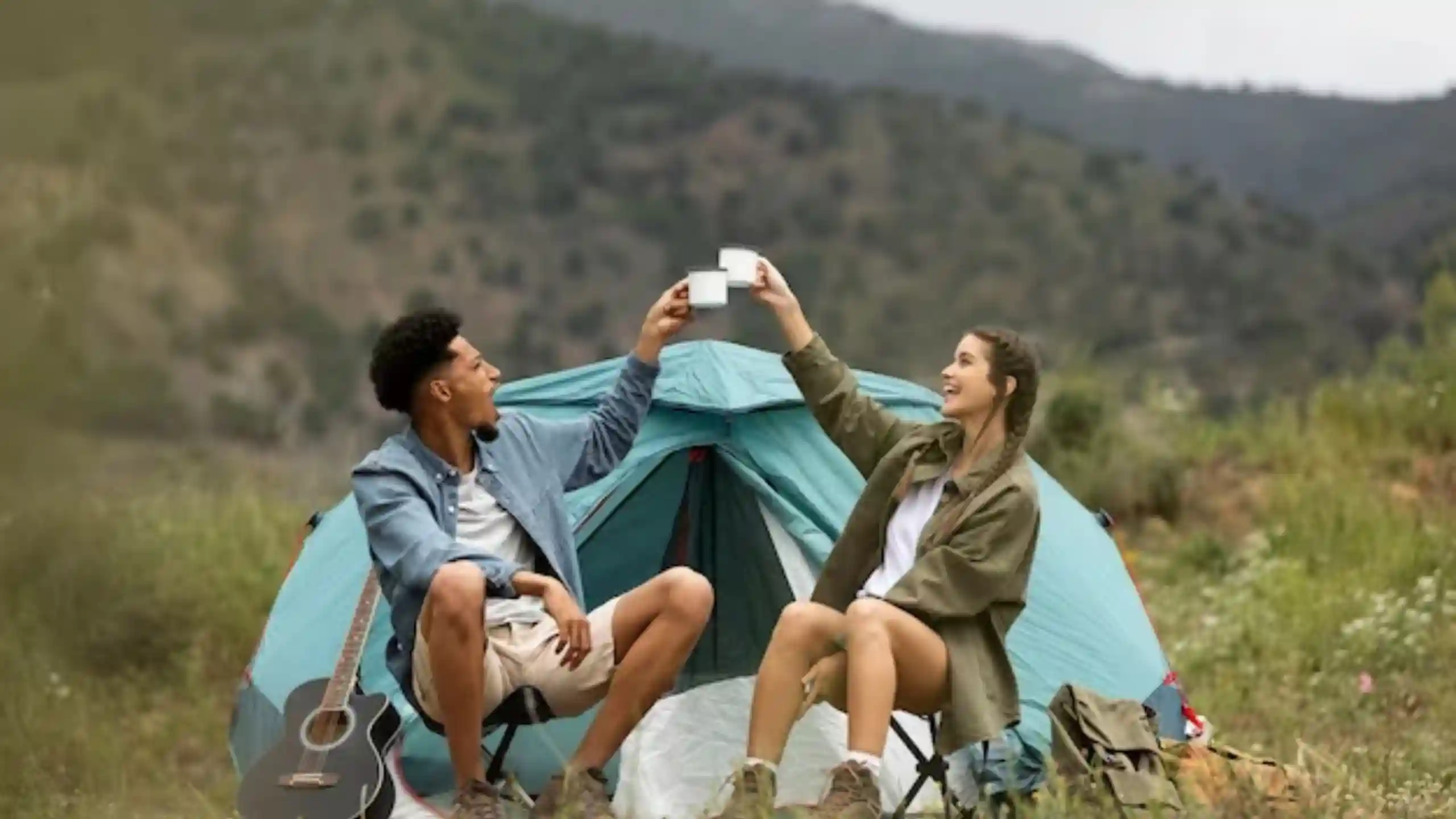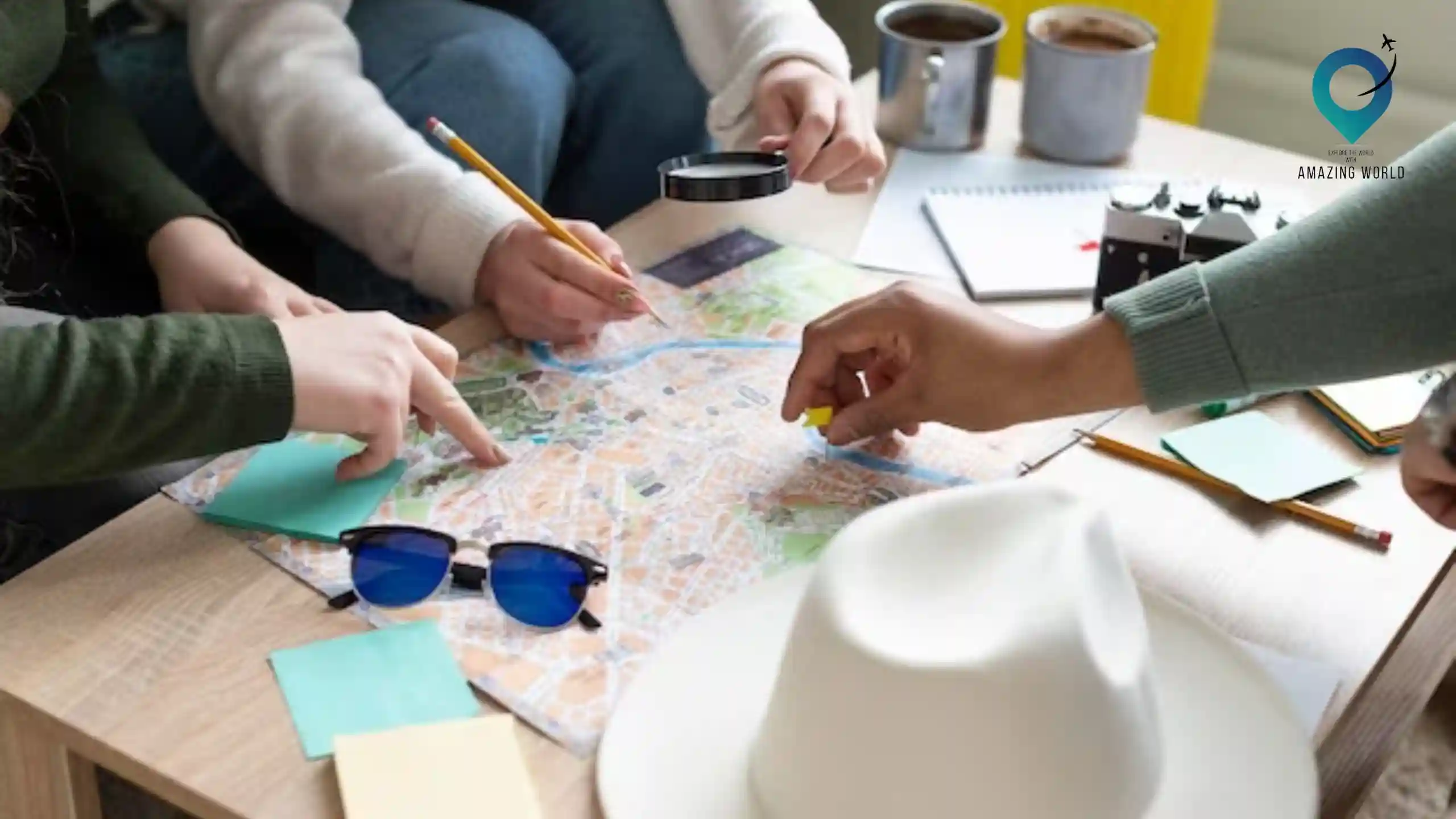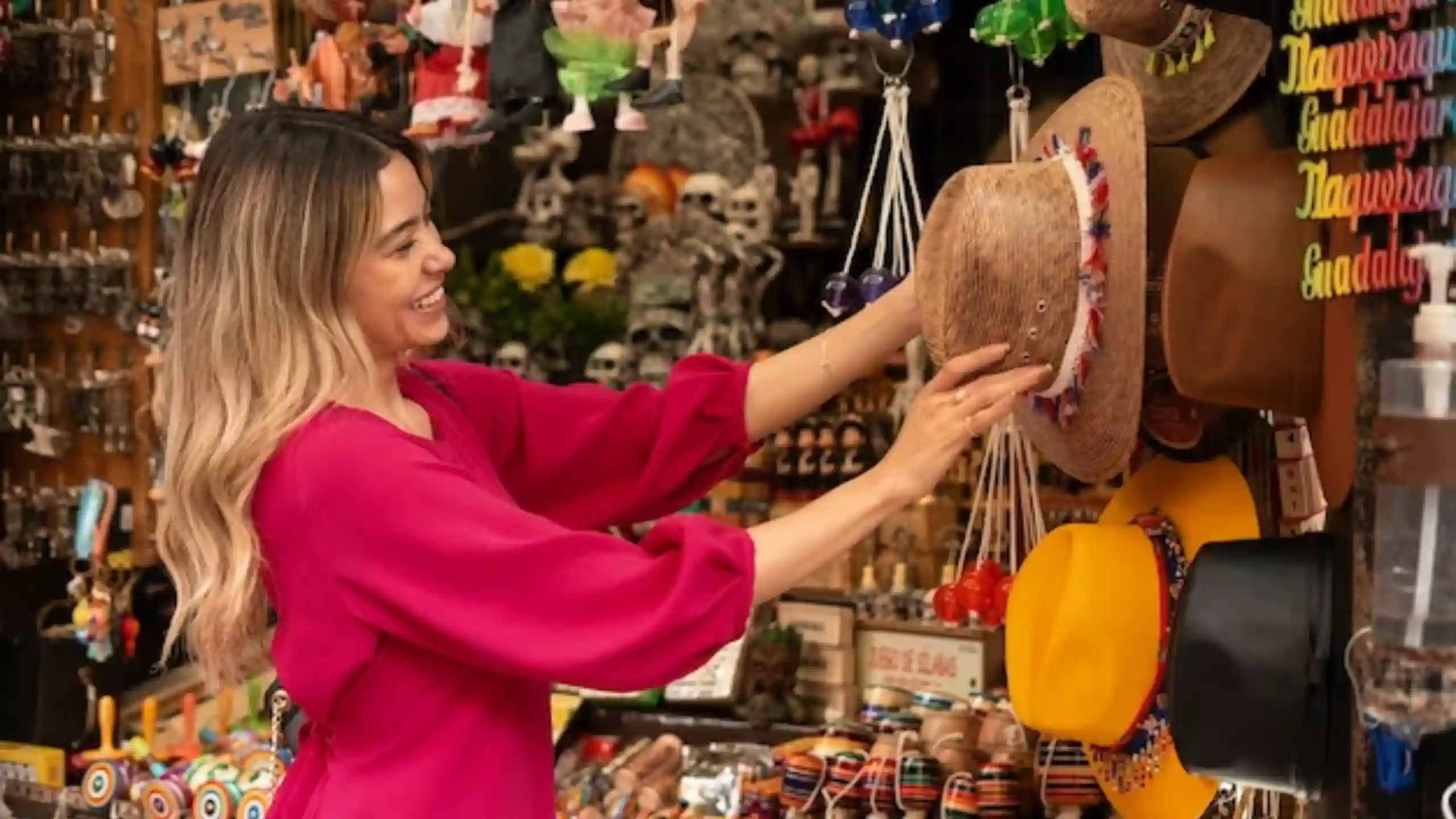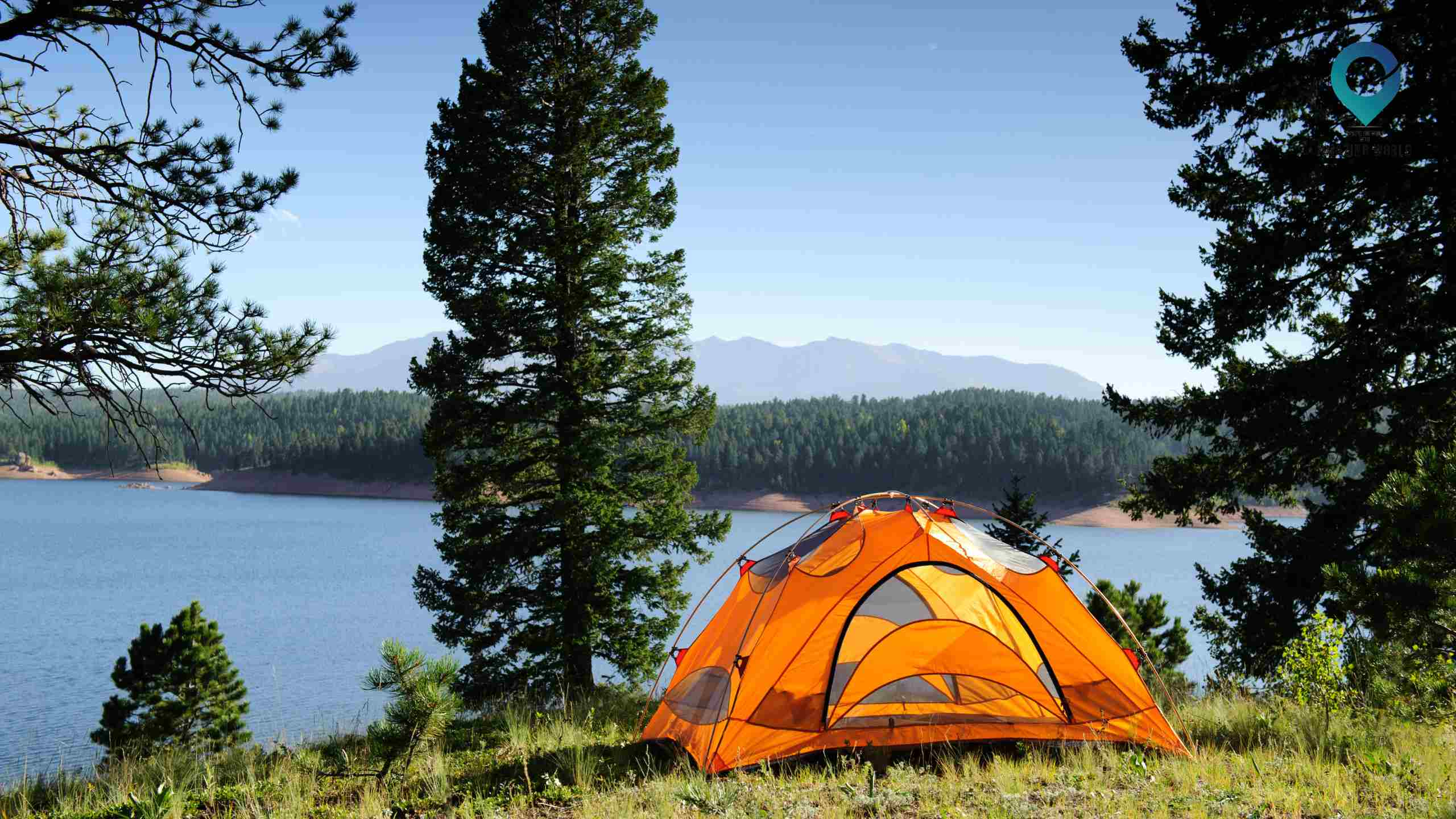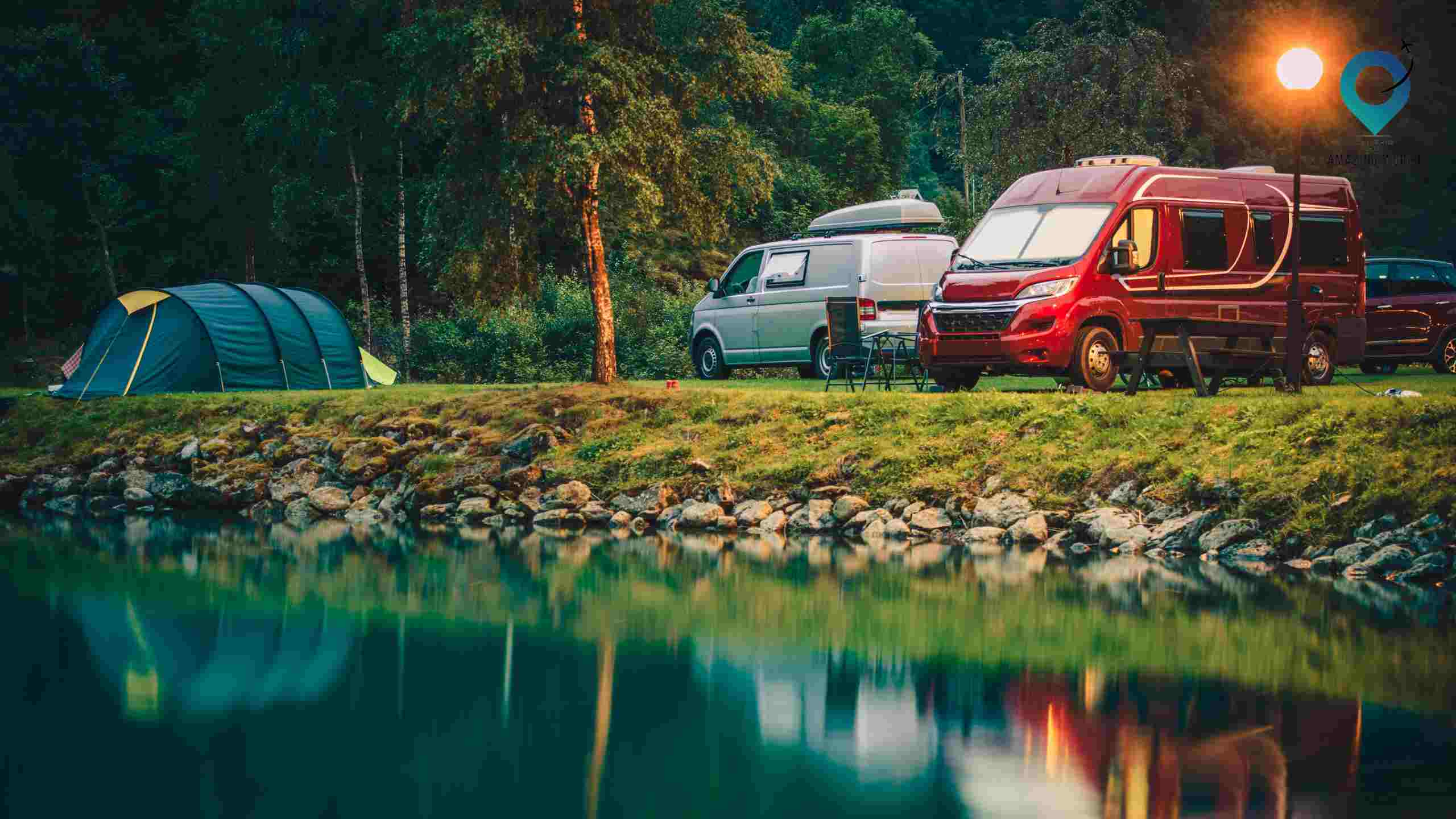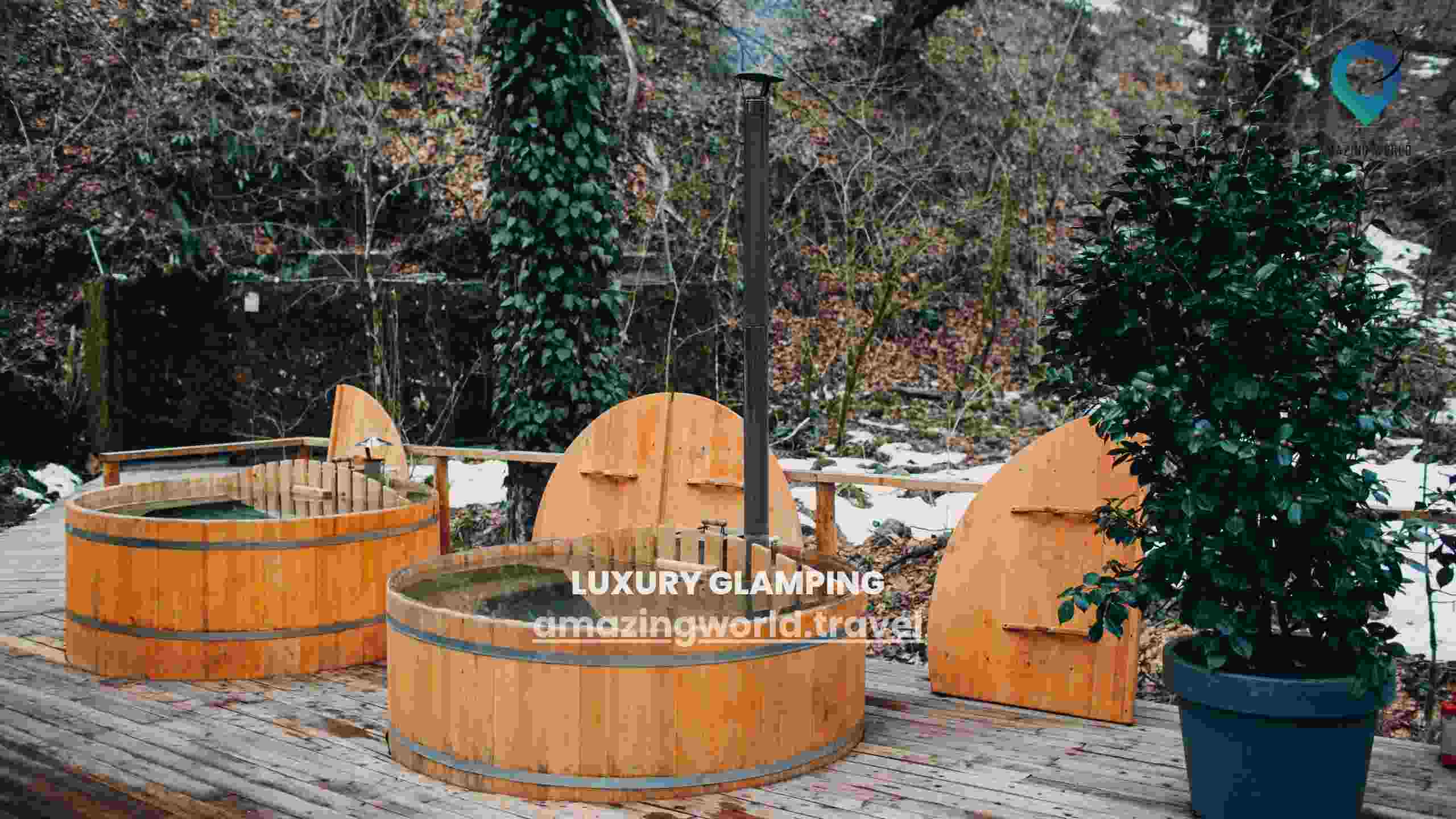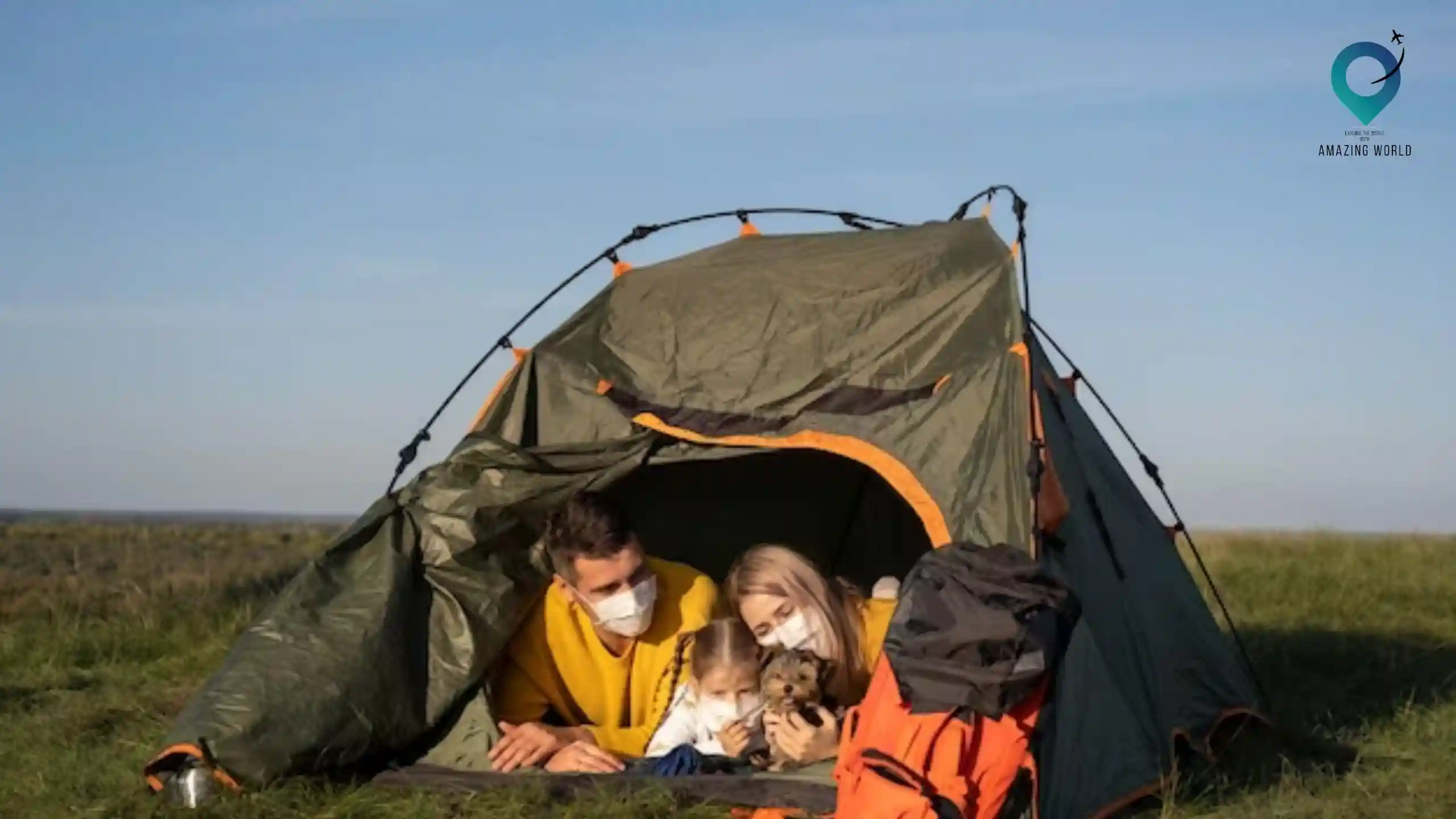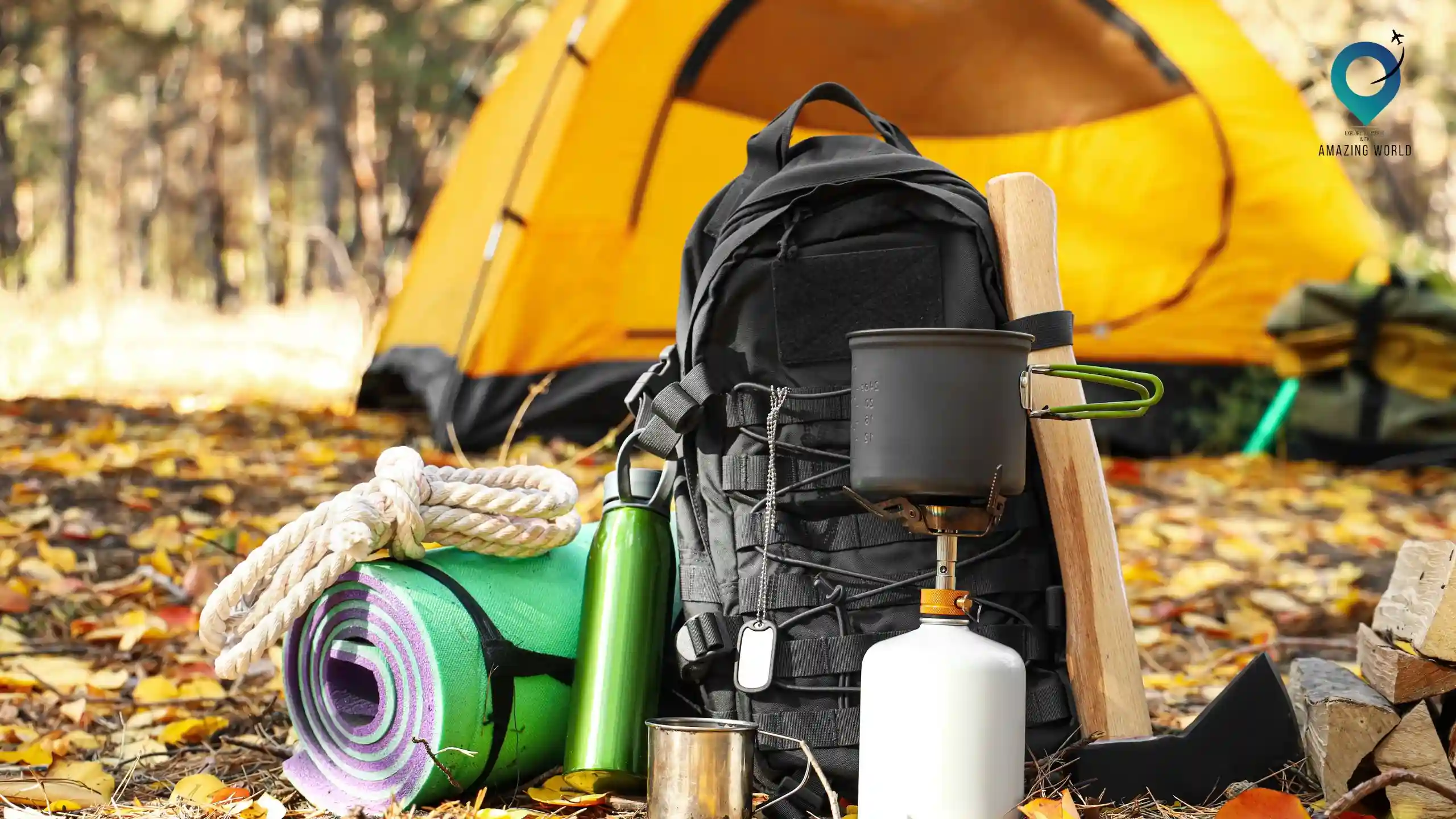Beginner Camping Guide: The Ultimate Step-by-Step Manual for an Unforgettable Outdoor Adventure
Table of Contents
Toggle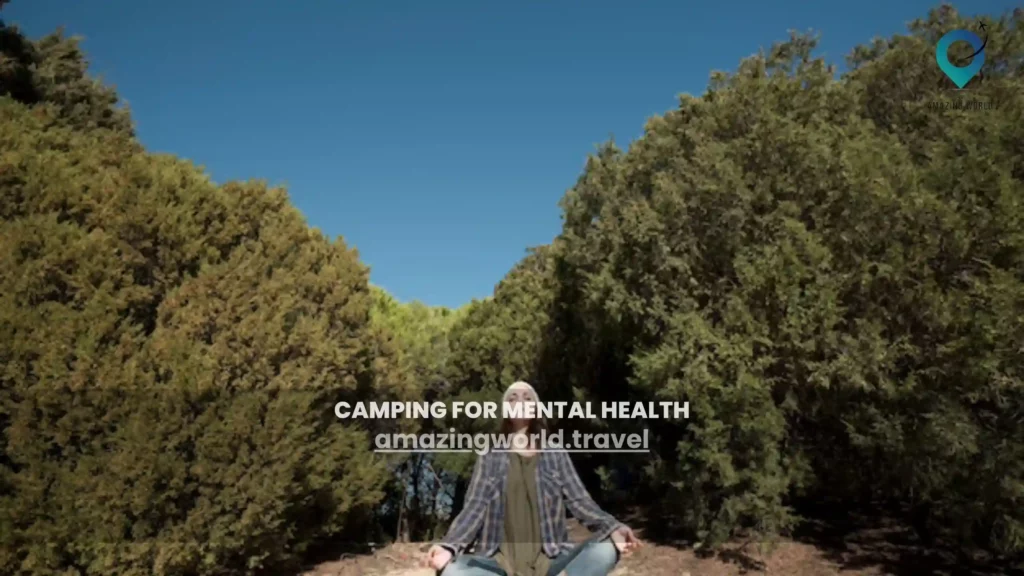
Embarking on the thrilling journey of beginner camping opens the door to a world of exploration, self-discovery, and an intimate rendezvous with nature’s wonders. As you take your first steps into the realm of outdoor adventure, this comprehensive guide is your compass, navigating you through the intricate landscape of tents, campfires, and starlit nights.
From setting up camp to savoring the simplest joys of cooking outdoors, we’ve distilled the essence of camping into a user-friendly manual tailored to novices and those seeking a rejuvenating break from the urban hustle. Unveil the enchantment of the great outdoors, equip yourself with the essential skills, and let your spirit roam free amidst towering trees and open skies.
Join us as we unveil the secrets to crafting unforgettable memories amidst the serenity of nature’s embrace.
What is camping and what types of camping?
Camping refers to the activity of temporarily living outdoors, typically in a tent or shelter, as a recreational or leisure pursuit. It involves spending time away from urban environments and immersing oneself in natural settings, often with the intention of enjoying outdoor activities, relaxation, and connecting with nature. Camping can vary in terms of location, duration, level of comfort, and the activities involved. There are several types of camping, each offering a unique experience:
- Car Camping: Car camping involves driving to a designated campsite and setting up a tent or shelter near your vehicle. It’s a convenient option for beginners and families as it allows easy access to amenities and the ability to bring more gear and supplies.
- Backpacking: Backpacking entails carrying all necessary gear and supplies in a backpack and hiking to a remote or wilderness area to set up camp. It offers a more immersive experience and the opportunity to explore rugged and less-visited locations.
- Tent Camping: This is the most common form of camping, where individuals or groups set up tents in campgrounds or designated areas. Tent camping provides a balance between comfort and the outdoor experience.
- RV or Motorhome Camping: RV (recreational vehicle) or motorhome camping involves using a motorized vehicle equipped with living amenities like beds, a kitchen, and bathroom facilities. It offers greater comfort and convenience for those who prefer a home-like environment.
- Glamping: Glamping, short for “glamorous camping,” combines the experience of camping with luxury and comfort. It often involves staying in well-appointed tents or cabins with amenities like comfortable beds, electricity, and even en-suite bathrooms.
- Survivalist or Bushcraft Camping: This type of camping focuses on using minimal gear and relying on survival skills to thrive in the wilderness. It includes building shelters, starting fires without matches, and foraging for food.
- Canoe or Kayak Camping: Canoe or kayak camping involves traveling by water, often on rivers or lakes, and camping along the water’s edge. It’s a unique way to explore and enjoy natural waterways.
- Bikepacking: Similar to backpacking, backpacking involves cycling to reach camping destinations. Cyclists carry their gear on specially designed racks attached to their bicycles.
- Winter Camping: Winter camping challenges individuals to camp in cold weather conditions. Proper gear, clothing, and knowledge of cold-weather survival are essential for a safe experience.
- Hammock Camping: Hammock campers sleep in suspended hammocks instead of tents. It’s a lightweight and comfortable option, particularly in areas with trees for hanging.
- Desert Camping: Camping in desert regions presents unique challenges due to extreme temperatures and sparse vegetation. Adequate water supply and sun protection are crucial.
- Group or Family Camping: Camping with friends or family members can enhance the experience by fostering social connections and shared memories.
The type of camping you choose depends on your preferences, the level of comfort desired, your outdoor skills, and the level of adventure you seek. Each type offers its own set of rewards and challenges, contributing to the diverse and enriching world of camping.
What is the importance of camping?
Camping holds significant importance for a variety of reasons, encompassing both physical and mental well-being, as well as fostering a connection with nature and personal growth. Here are some key aspects that highlight the importance of camping:
- Nature Connection: Camping allows individuals to disconnect from the busy modern world and immerse themselves in the natural environment. This connection with nature can help reduce stress, anxiety, and mental fatigue, leading to improved overall well-being.
- Physical Activity: Camping often involves outdoor activities like hiking, swimming, and exploring. Engaging in these activities promotes physical fitness, and cardiovascular health, and helps individuals get some much-needed exercise while having fun.
- Mental Rejuvenation: Spending time in natural surroundings has been shown to have a positive impact on mental health. The tranquility of the outdoors and the absence of urban noise contribute to relaxation and stress reduction.
- Skill Development: Camping requires individuals to learn and practice various skills, such as setting up tents, building fires, and cooking outdoors. Acquiring these skills fosters a sense of self-reliance and confidence.
- Personal Growth: Overcoming challenges in a camping environment, such as unpredictable weather or unfamiliar surroundings, promotes personal growth and resilience. It can help individuals step out of their comfort zones and develop problem-solving skills.
- Social Bonds: Camping often involves group activities, making it an excellent opportunity to bond with family and friends. Sharing experiences, telling stories around the campfire, and working together to set up camp create lasting memories and strengthen relationships.
- Environmental Awareness: Camping encourages an appreciation for the environment and an understanding of the importance of conservation. Practicing responsible camping, such as following Leave No Trace principles, reinforces the idea of preserving natural spaces for future generations.
- Digital Detox: Camping provides a break from technology and screen time, allowing individuals to disconnect from their devices and reconnect with their surroundings and fellow campers.
- Appreciation for Simple Pleasures: Being outdoors reminds individuals of the beauty in simplicity. Basic activities like cooking over a campfire or gazing at the stars become cherished experiences.
- Escape from Routine: Camping offers an escape from the daily routine and offers a chance to step away from the demands of work and responsibilities, providing a much-needed mental refresh.
In essence, the importance of camping lies in its ability to rejuvenate the mind, body, and spirit through exposure to nature, outdoor activities, and a break from the modern hustle and bustle. It’s an opportunity to connect with oneself, loved ones, and the natural world, leading to a more balanced and fulfilled life.
List of Ultimate Camping Guide for Beginners
Gear Basics
As you gear up for your camping adventure, focus on the essentials that form the backbone of your outdoor experience:
- Tent: Your temporary shelter is your sanctuary in the wilderness. Look for one that’s easy to set up and take down. Practice assembling it at home before you embark on your trip.
- Sleeping Bag and Pad: A good night’s sleep is vital for an enjoyable camping experience. Choose a sleeping bag suitable for the weather conditions and terrain. A sleeping pad provides insulation and cushioning against the ground.
- Cooking Equipment: Camping meals need not be complicated. Invest in a portable camping stove, mess kit, and utensils. Keep it simple with easy-to-cook meals that require minimal ingredients.
- Clothing: Dressing appropriately for the weather is essential. Pack layers that can be added or removed as temperatures change. Don’t forget rain gear to stay dry in wet conditions.
- Flashlights and First Aid Kit: Illuminate your campsite with reliable flashlights or headlamps. A well-stocked first aid kit is a must for addressing minor injuries and ailments.
Finding the Right Spot
Choosing the ideal campsite is like finding a piece of heaven in the wilderness:
- Proximity: Especially for your inaugural camping adventure, opt for a campsite that’s not too far from your vehicle. This simplifies logistics and provides a sense of security.
- Facilities: Campgrounds often offer restroom facilities and access to clean water. If you’re more inclined toward a remote experience, ensure you’re equipped to handle your waste responsibly.
- Safety: Safety is paramount. Look for level ground that’s free from hazards like dead trees or low-lying areas that might flood during rain.
- Scenery: Part of the joy of camping is being surrounded by nature’s beauty. Seek out campsites with scenic vistas, riverside views, or serene forests. The backdrop can greatly enhance your camping memories.
Setting Up Camp
A well-organized campsite sets the stage for a comfortable and enjoyable stay:
- Tent Pitching: Follow the manufacturer’s instructions to pitch your tent. Practice beforehand to streamline the process when you’re on-site.
- Sleeping Arrangements: Lay out your sleeping bags and pads within the tent. This creates a designated sleep area and provides insulation against the ground’s cold.
- Campsite Organization: Organize your gear within your campsite. Designate areas for cooking, food storage, and relaxation. Keeping things tidy not only helps you find what you need but also minimizes the chance of attracting wildlife.
Camping is an opportunity to embrace simplicity, reconnect with nature, and forge unforgettable memories. With these foundational aspects in place, you’re well on your way to experiencing the joys of camping as a beginner.
Campfire and Safety
While camping, gathering around a campfire can be one of the most cherished experiences. However, safety is paramount to ensure a positive and secure outdoor adventure:
- Campfire Safety: Before you light a campfire, ensure that there’s a designated fire ring or fire pit at your campsite. Clear the area around it from any flammable materials, like leaves or dry grass.
- Fire Building: Begin with small, dry twigs and gradually add larger branches as the fire builds. Properly managed, the campfire will provide warmth, light, and a cozy atmosphere.
- Extinguishing Fires: Never leave a campfire unattended. When you’re ready to leave or sleep, douse the fire completely with water or dirt. Stir the ashes to make sure there are no embers remaining.
Simple Outdoor Cooking
Cooking outdoors can be a fun and rewarding part of your camping adventure:
- Meal Planning: Keep your camping meals simple yet satisfying. Consider prepping some meals in advance to make cooking at the campsite more efficient.
- Cooking Methods: A portable camp stove is an excellent option for hassle-free cooking. Alternatively, you can embrace the traditional experience of cooking over a campfire.
- Food Storage: Properly store your food to prevent wildlife encounters. Use sealed containers or bags and keep food away from your sleeping area.
Exploring Nature
The essence of camping lies in immersing yourself in nature’s beauty and tranquility:
- Hiking: Discover the natural wonders around you by embarking on hikes. Choose trails that match your fitness level and offer scenic rewards along the way.
- Nature Walks: Sometimes, the most captivating sights are right around your campsite. Take leisurely strolls to observe the local flora and fauna.
- Sightseeing: Seek out nearby viewpoints or natural landmarks. These vantage points offer breathtaking vistas and provide a sense of accomplishment.
Venturing into the wilderness and enjoying outdoor activities connects you with nature in a profound way. By following safety precautions, simple cooking methods, and embracing the wonder of the outdoors, your camping experience as a beginner will undoubtedly be one for the books.
Dealing with Challenges
Camping, while rewarding, can also present unexpected challenges. Being prepared will enhance your experience and confidence:
- Weather Readiness: Nature’s mood can change swiftly. Pack clothing layers to accommodate varying temperatures. Include rain gear like waterproof jackets and pants to stay dry during unexpected showers.
- Common Issues: Insects and minor injuries are common camping companions. Pack insect repellent to ward off bugs and a basic first aid kit for cuts, scrapes, and blisters.
- First Aid: Familiarize yourself with the contents of your first aid kit and how to use them. It’s essential to know basic first aid techniques like cleaning wounds and applying bandages.
Respect Nature
Camping is not just about enjoying nature but also preserving it for future generations:
- Leave No Trace: Adhere to the Leave No Trace principles, which guide responsible outdoor behavior. Minimize your impact by properly disposing of waste, avoiding damage to plants, and respecting wildlife.
- Waste Management: Pack out everything you bring in, including trash and food scraps. Leave your campsite as pristine as you found it.
- Wildlife Interaction: Observe wildlife from a distance, resisting the urge to feed or approach animals. This not only protects you but also maintains the natural behaviors of wildlife.
Wrapping Up
As your camping adventure comes to a close, it’s essential to reflect on the journey and plan for the future:
- Memorable Moments: Capture the essence of your camping experience through photographs, sketches, or journal entries. These souvenirs will remind you of the beauty you encountered.
- Personal Achievements: Celebrate even the smallest victories, whether it’s conquering a challenging hike, lighting a successful campfire, or cooking a delicious meal.
- Future Adventures: Let your first camping trip be a stepping stone to many more. Use what you’ve learned to plan your next outdoor excursion, armed with newfound skills and a deeper appreciation for nature.
Camping introduces you to the rhythm of the natural world and provides a break from the routines of everyday life. By addressing challenges, respecting the environment, and cherishing the memories you create, you’ll not only enrich your own life but contribute to the preservation of the wilderness for generations to come.
Wrapping Up
As your camping adventure comes to a close, it’s essential to reflect on the journey and plan for the future:
- Memorable Moments: Capture the essence of your camping experience through photographs, sketches, or journal entries. These souvenirs will remind you of the beauty you encountered and the memories you created with friends or family.
- Personal Achievements: Reflect on your journey and celebrate even the smallest victories. Whether it’s conquering a challenging hike, successfully lighting a campfire, or mastering the art of outdoor cooking, each accomplishment contributes to your growth as a camper.
- Future Adventures: Let your first camping trip be a stepping stone to many more. Use the skills and knowledge you’ve gained to plan your next outdoor excursion. With each new trip, you’ll refine your camping abilities and continue to deepen your connection with nature.
Camping is a profound experience that invites you to slow down, savor the beauty of the natural world, and reconnect with your primal self. By addressing challenges, respecting the environment, and cherishing the memories you create, you’ll not only enrich your own life but contribute to the preservation of the wilderness for generations to come.
Conclusion
Embarking on your first camping adventure is like opening a door to a world of exploration and connection with nature. This guide has led you through the essential aspects of camping as a beginner, from gear selection and campsite setup to outdoor cooking and embracing the wonders of the wilderness. By following the steps outlined here, you’ve set the stage for a successful and fulfilling experience.
Remember that camping is not only about learning new skills; it’s about nurturing a deeper appreciation for the natural world. As you venture into the great outdoors, take the time to listen to the rustling leaves, marvel at the star-studded night sky, and soak in the tranquility that only nature can offer. Each moment spent in the wild is an opportunity for growth, reflection, and rejuvenation.
So, pack your bags, lace up your hiking boots, and embark on this new adventure. Whether you’re gazing at breathtaking vistas, sharing stories around the campfire, or savoring the simplicity of cooking outdoors, every step you take will become a part of your unique camping story. As a beginner, you’re setting out on a journey that has the potential to become a lifelong passion.
How much did you like Our detailed Beginner Camping Guide: The Ultimate Step-by-Step Manual for an Unforgettable Outdoor Adventure? Review Also, please share these Blogs with your friends on social media.
Related Article –
- Road Trips Ideas | 12 Tips to Prepare Your Car for a Long Road Trip?
- 150 Best Places to Visit in the United States In 2023
- Road Trip With Kids
- How to Stay Awake While Driving Long Distances
- Audiobooks to Listen to On Your Road Trip
- How to Create an Epic Itinerary Road Trip
- Best Rental Cars For Travel Adventures
Beginner Camping ( FAQ’s)
What should I pack for a camping trip?
Packing essentials include a tent, sleeping bag, clothing suitable for the weather, cooking equipment, food, water, a first aid kit, a flashlight, and personal items. Refer to a camping checklist for a comprehensive list of items to pack.
How do I choose a suitable campsite?
Consider factors like proximity to facilities, safety, scenery, and the type of experience you want. Campgrounds provide amenities, while backcountry sites offer solitude. Research and plan ahead to find the perfect spot.
What is Leave No Trace and why is it important?
Leave No Trace is a set of principles that guide responsible outdoor behavior to minimize environmental impact. It includes practices like packing out trash, respecting wildlife, and avoiding damage to vegetation. Following these principles preserves natural spaces for future generations.
How do I start a campfire safely?
Choose a designated fire ring or fire pit. Clear the area of flammable materials. Use small, dry twigs to start the fire and gradually add larger wood. Always have water or dirt nearby to extinguish the fire completely when done.
What do I do if I encounter wildlife during camping?
Maintain a safe distance and avoid feeding or approaching wildlife. Observe from a distance and respect their natural behaviors. Properly store food to prevent attracting animals to your campsite.
Can I camp if I have little outdoor experience?
Absolutely! Many camping types cater to beginners. Research and choose a type that aligns with your comfort level. Start with car camping or campgrounds to ease into the experience.
How can I stay comfortable while camping?
Adequate gear is key. Invest in a good sleeping bag, pad, and clothing suitable for the weather. Properly set up your campsite and organize gear for convenience. Embrace the outdoors with an open mind and positive attitude.
What are some easy camping meal ideas?
Simplify meals by opting for pre-packaged or easily prepared options. Sandwiches, salads, canned soups, and instant oatmeal are convenient choices. For a more elaborate experience, try foil-packet meals or simple campfire cooking.
What if the weather changes unexpectedly during my camping trip?
Be prepared for varying weather conditions by packing appropriate clothing layers. Have rain gear on hand, and check the weather forecast before your trip to anticipate any changes.
Is camping safe for families with young children?
Yes, camping can be a wonderful family activity. Choose family-friendly campsites with amenities and activities suitable for children. Plan shorter hikes and bring entertainment options to keep kids engaged.

Meet David Hoper, a passionate travel Blog writer with 7+ years of experience in travel content. Through his exemplary storytelling and engaging narratives, he shares his experiences and brings destinations to life. With a keen eye for detail and a love for exploration, he has cultivated a diverse portfolio of travel blogs that inspire and inform readers worldwide.
